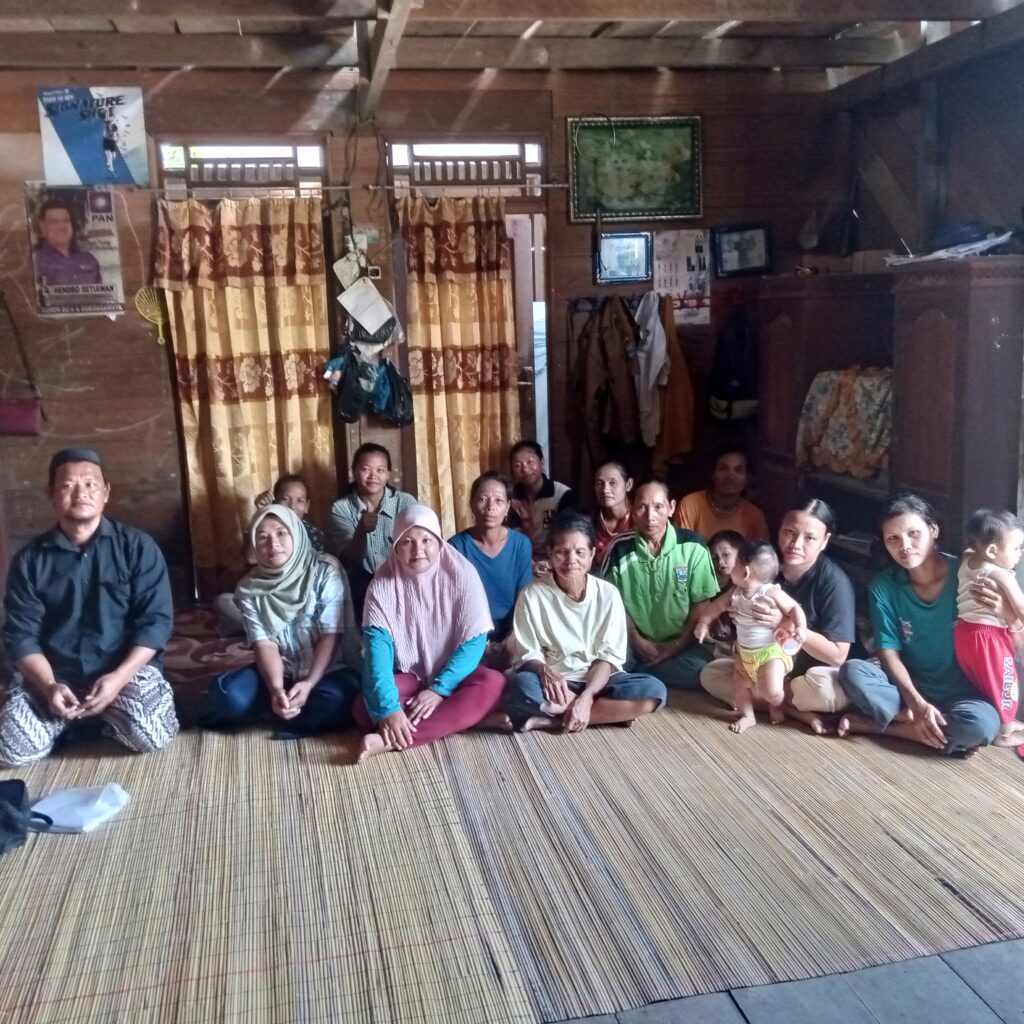The Citra Mandiri Mentawai Foundation conducted training and education activities for indigenous communities, marginalized groups in Muntei Village, South Siberut District, Mentawai Islands Regency, West Sumatra on March 18 and 23 2023
This activity was given the theme: Training and education for marginalized groups. This training involved indigenous communities in 2 hamlets, namely Puro hamlet and Salappa hamlet. This training was held for 2 days and was attended by around 24 people from Salappa hamlet and 14 women representatives from Puro hamlet.
Muntei Village was the choice to conduct this training because it is one of YCMM's assisted villages for the estungkara program in the Mentawai Islands district.
The aim of this activity is:
1. Increase the capacity of indigenous communities and marginalized groups (women, children and people with disabilities) related to basic service institutions, social protection, government programs, as well as empowerment and protection of victims of violence.
2. Increase the capacity of indigenous communities and marginalized groups in accessing basic services, social protection, government programs, as well as empowering and protecting victims of violence.
3. Develop critical awareness of indigenous communities and marginalized groups to be involved in development planning forums in villages.
Encouraging the realization of social inclusion in Muntei village.
From the objectives above, the expected activity output is:
– Increasing knowledge and understanding of indigenous peoples, marginalized groups (women, children and people with disabilities) and other vulnerable groups regarding their citizenship rights.
– Indigenous communities and marginalized groups and other vulnerable groups are willing and able to participate and play an active role in village planning and development.
– Indigenous peoples and marginalized groups and other vulnerable groups are willing and able to fight for their citizenship rights.
The material presented in this training is:
1. Basic types of services, and how to access them.
2. Convey what are the rights and obligations as part of a citizen.
3. The function and role of the state in meeting the basic needs of its citizens.
After presenting the material, the activity continued with a discussion about what the community felt according to the material that had been presented.
Communities involved in this training receive several benefits including:
– Have new knowledge about the types of basic services and how to access them, especially regarding the conditions that must be met.
– Understand the types of sexual violence and what actions should be taken when such incidents occur in the village or hamlet where they live.
The obstacle faced during this training was how to convey several terms, such as basic services, social inclusion, into local languages so that they are more easily understood by the community.


